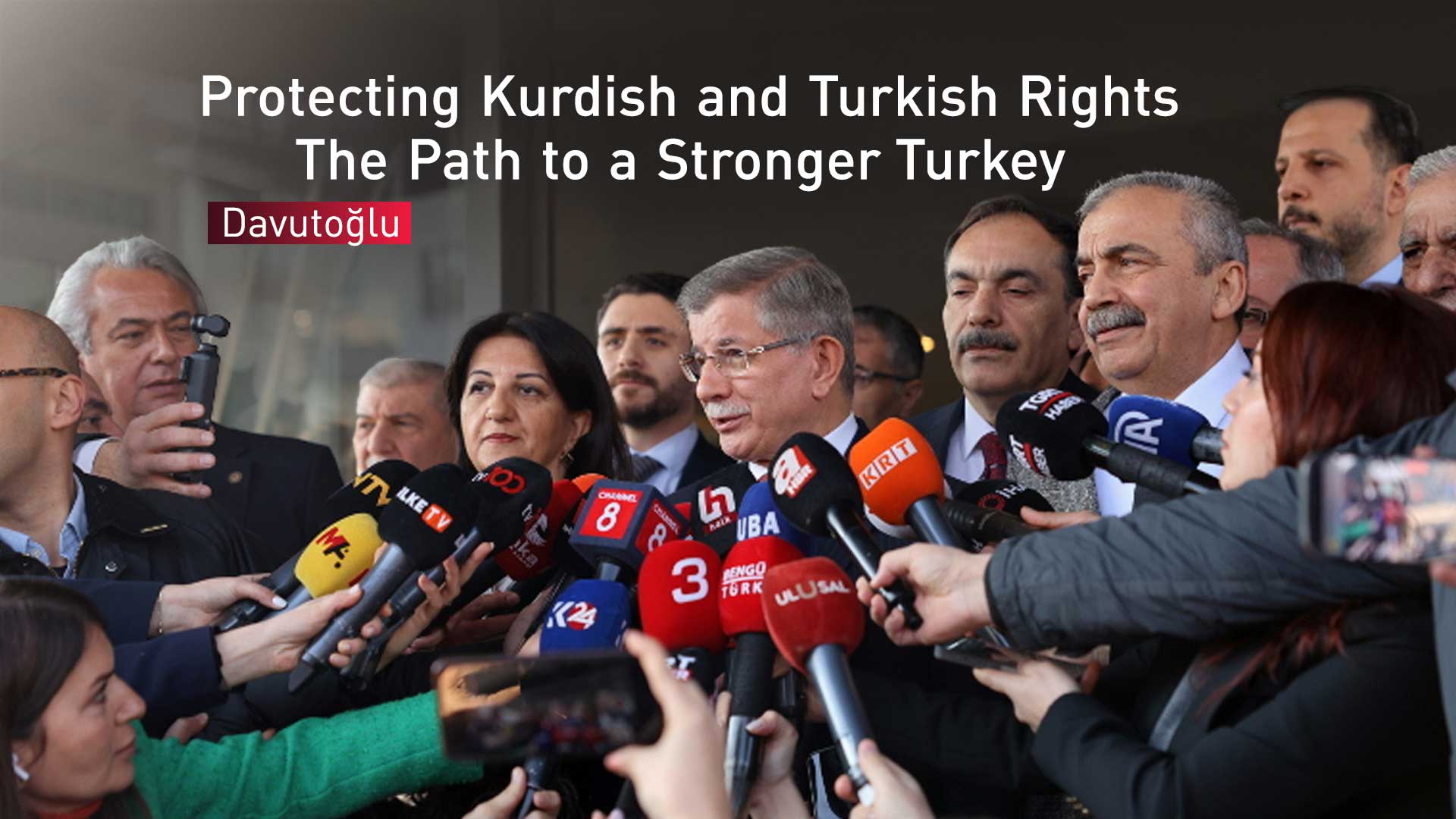Future Party leader links Turkish democracy to regional stability in key Kurdish dialogue
The Future Party leader contextualized the talks within broader regional dynamics, stating, "When Turkey achieves full democracy and protects the rights of Kurds, Turks, and all citizens, our domestic strength will positively impact Iraq and Syria."

Jan. 6, 2025
ERBIL (Kurdistan24) – On Monday, Future Party leader Ahmet Davutoğlu highlighted the interconnectedness between Turkish domestic democratic progress and regional stability during a meeting with the Peoples' Democratic Equality and Democracy Party (DEM Party).
Following wide-ranging discussions, Davutoğlu described the discussions as "substantive and serious," remarking that the delegation provided valuable insights concerning the peace process.
"We emphasized the importance of learning from past experiences," he stated during a subsequent press conference.
The Future Party leader contextualized the talks within broader regional dynamics, stating, "When Turkey achieves full democracy and protects the rights of Kurds, Turks, and all citizens, our domestic strength will positively impact Iraq and Syria."
He particularly emphasized the current sensitive period marked by important global and regional developments.
Davutoğlu expressed support for MHP leader Devlet Bahçeli's domestic peace initiative, calling for all parties to "proceed with wisdom during this crucial period."
The discussions also included regional considerations, with particular attention to developments in Syria and Iraq.
The DEM Party delegation subsequently conducted meetings with the AK Party parliamentary group and planned discussions with the Saadet Party faction.
Further consultations are considered for Tuesday, Jan. 7, with DEVA Party leader Ali Babacan and Yeniden Refah Party chairman Fatih Erbakan.
This diplomatic initiative takes place amid Turkey's developing approach to Kurdish relations and broader regional dynamics.
The parliamentary agenda's focus on Kurdish issues and peace process initiatives reflects a possible change in Turkey's domestic political landscape.
The CHP's pending decision on meeting the delegation, to be decided through their party leadership council, underlines the complex political calculations surrounding this peace initiative.
The timing and scope of these cross-party meetings suggest a wide-ranging attempt to build consensus on Kurdish relations, marking a possibly important change in Turkey's approach to long-standing domestic and regional challenges.
The emphasis on democratic reinforcement as a precondition for regional stability signals an evolving perspective on the interconnectedness between domestic policy and regional influence.